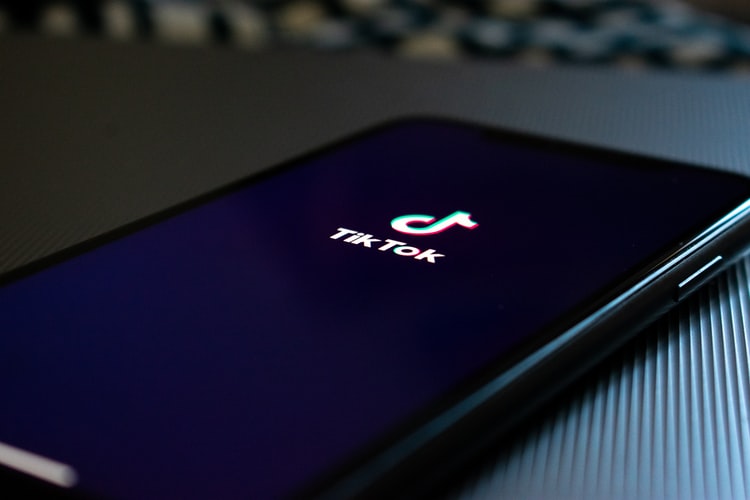TikTok Sued in France Over Harmful Content Linked to Teen Suicides
In a groundbreaking legal move, seven French families have filed a lawsuit against social media giant TikTok, alleging that the platform's content led to the tragic suicides of two teenagers. The lawsuit claims that TikTok's algorithm exposed these adolescents to harmful videos promoting suicide, self-harm, and eating disorders, contributing to the devastating outcomes. The families’ lawyer, Laure Boutron-Marmion, announced the news, emphasizing the seriousness of the case and its implications for social media regulation.
Allegations Against TikTok
The families are taking joint legal action in the Créteil judicial court, marking what is reportedly the first grouped case of its kind in Europe. The lawsuit alleges that TikTok’s algorithm promoted dangerous content directly to the teenagers, creating an environment that fostered unhealthy behaviors and mindsets. Boutron-Marmion stated that the parents aim to hold TikTok legally accountable for the content presented to their children. “The parents want TikTok’s legal liability to be recognized in court,” she explained. “This is a commercial company offering a product to consumers who are, in addition, minors. They must, therefore, answer for the product’s shortcomings.”
This legal action reflects a growing concern over the impact of social media on the mental health of young users. The tragic loss of the two 15-year-olds has prompted these families to seek justice, not only for their own children but also to potentially influence changes in how social media platforms operate in relation to vulnerable populations.
The Context of the Case
According to local reports, the case revolves around allegations that TikTok's algorithm not only exposed the teenagers to harmful videos but also perpetuated a cycle of negative reinforcement through engagement metrics. The plaintiffs argue that this created a feedback loop that encouraged the consumption of increasingly distressing content.
The case has drawn significant media attention and has sparked discussions about the responsibilities of social media companies in safeguarding young users. As mental health issues among adolescents rise, the spotlight on TikTok and similar platforms has intensified, with many advocating for stricter regulations to protect minors.
TikTok’s Content Regulation Policies
TikTok has stated that it takes the mental health of its users seriously and has implemented various content regulation policies aimed at mitigating harmful behavior on the platform. Key components of TikTok's content moderation framework include:
- Community Guidelines: TikTok has established community guidelines that prohibit content promoting self-harm, suicide, and eating disorders. These guidelines outline what constitutes harmful content and emphasize the platform's commitment to fostering a safe environment for users.
- Content Moderation Systems: The platform employs a combination of automated systems and human moderators to review content that may violate community guidelines. This includes the use of artificial intelligence to detect and flag inappropriate videos before they can be widely distributed.
- Support Resources: TikTok has also included features that direct users to mental health resources when they search for terms related to self-harm or suicide. These features aim to provide immediate support and guidance to users who may be struggling.
- Collaboration with Experts: The company has sought collaboration with mental health organizations and experts to develop educational content and initiatives aimed at promoting mental well-being among young users.
Despite these measures, critics argue that TikTok’s algorithms still prioritize engagement over user safety, often exposing vulnerable adolescents to potentially harmful content. This lawsuit could challenge TikTok to reassess its content moderation practices and algorithmic prioritization, especially concerning minors.
Related: Could Tik Tok be banned in the US?
A Wider Trend of Legal Challenges
This lawsuit follows a pattern observed in the United States, where platforms like Meta, the parent company of Facebook and Instagram, are facing numerous lawsuits for allegedly contributing to mental health issues among children. Critics argue that these platforms are enticing and addicting millions of young users, which has raised alarms regarding their well-being.
Despite the serious allegations, TikTok has stated that it takes issues related to children’s mental health very seriously. In a recent address to U.S. lawmakers, CEO Shou Zi Chew asserted that the company has invested significantly in measures designed to protect young users on the app. However, the effectiveness of these measures remains under intense scrutiny as more families voice their concerns.
The Importance of Accountability
The ongoing legal action against TikTok underscores the urgent need for accountability in the digital age. As social media continues to play an integral role in the lives of adolescents, questions arise about the responsibility these platforms have in ensuring the safety of their young users. The outcomes of this lawsuit could set important precedents for how social media companies approach content moderation, particularly concerning vulnerable populations.
As the case progresses through the judicial system, it remains to be seen how TikTok will respond to these serious allegations. The families involved are hopeful that their legal battle will not only bring recognition to their loss but also foster change in how social media companies operate, particularly regarding the well-being of minors on their platforms.
Related: Bobbi Althoff: The Rise of a TikTok Sensation and Influential Interviewer
The lawsuit against TikTok serves as a poignant reminder of the potential dangers that social media can pose to young users. As society grapples with the intersection of technology and mental health, it is essential for social media platforms to prioritize user safety and well-being. The outcome of this case could significantly influence the future of content regulation on platforms like TikTok and set a precedent for similar actions across Europe and beyond.












